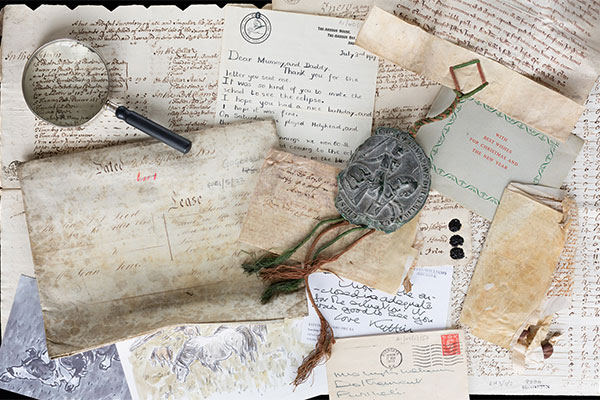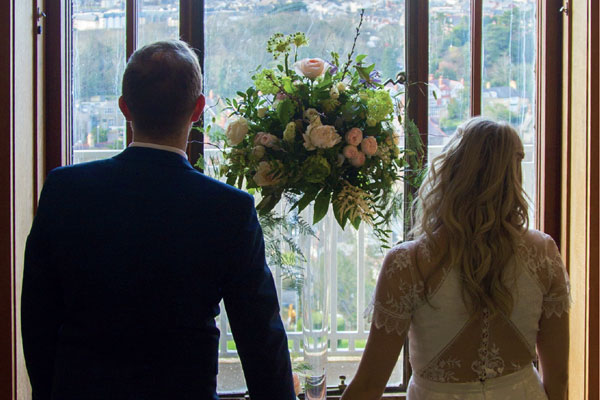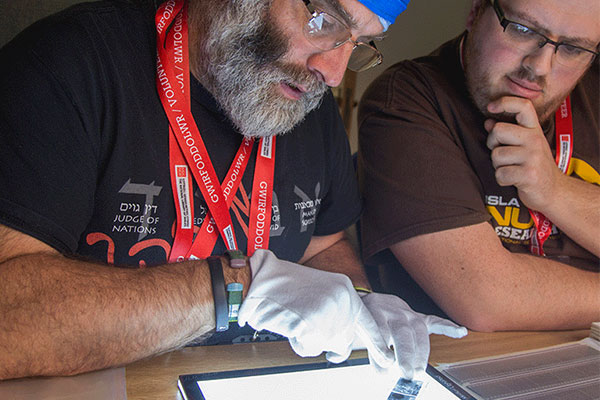Oed yr Addewid is back on the big screen again some 25 years since its production. With a host of Welsh stars and themes as relevant as ever, here is a little more background to the process of reviving the film from the archive.
It’s March 1997 and, following eighteen years of Tory rule, Britain is reaching a political crossroads. As William Davies walks from his house one morning, he puts a desperate and absurd plan into action that will get the better of the system - in his opinion. But things go wrong as the old man realizes that he has made a terrible mistake. As election day approaches, William Davies and his family learn a few truths - about each other, and about their true feelings about their home.
Emlyn Williams is the film’s author, as its director and screenwriter. Based on personal experiences, the film is rooted in the communities of the north-west, and the landscape of Pen Llŷn is a silent but powerful character through it.
The film premiered at the Cardiff International Film Festival in 2000, with other cinema screenings following in Wales in early 2001, as well as screenings at a number of European film festivals, including Douarnenez, Las Palmas, and Biarritz. The film was shown on S4C in April 2001, and won a number of BAFTA Cymru awards in 2002, including Best Actor, Best Script and Best Film.
When the Screen and Sound Archive had the opportunity to choose a film to digitise for cinemas, some time was taken to view and research potential films. There were a number of things to consider, often from the point of view of film exhibitors: the duration of the film, relevance to the audience, quality. Also, more practical things, such as what material was available for digitisation and the rights situation of the film.
In the end, our choice was Oed yr Addewid, with the original film elements being sent to R3Store for scanning and Gorilla for restoration. Although it was possible to do this type of work internally, at the time due to the huge demands of digitising the Broadcast Archive, this work had to be done externally.
It’s a film that is extremely relevant and appealing, certainly perhaps to audiences who are familiar with Welsh screen arts. Among the film's cast are some true greats, with almost every single face familiar to anyone with even only basic experience of watching Welsh film and television.
At the core of the film is Stewart Jones, offering a stoic and subtle performance as the old William Davies, former chapel leader and socialist who tries to get the best out of a political system that has - and will continue to - deceive him.
Equally central to the film are his children: Maureen, Alun and John, who are portrayed by Gwenno Elis Hodgkins, Arwel Gruffydd and Gwyn Vaughan. The three are diverse characters who also represent common paths for residents of rural communities.

Maureen has only moved as far as town - married, raised children and looked after her parents and neighbors throughout her life. On the contrary, John has fled south and made a name for himself in the world of business, with hardly a word to send home. Alun, the creative member of the family, has also left, but keeps in touch - sometimes. Alun is also addicted to alcohol, a condition that deteriorates as the film progresses.
Despite any weaknesses the film's characters have, there’s very little criticism of any of them here, including background characters. For example, the same nurse who slaps the hand of William's old friend, Robat (Phylip Hughes), in a different scene, also gives him a small kiss on his head. Although Bodlondeb is a miserable home for its residents, all the staff do their best - despite any failures - under their personal circumstances. This is a film that quietly makes sure that we understand that the system is mainly to blame here, not necessarily individuals.
William is not the only one who has been failed by political and social systems either. Maureen reminds us of the imbalance that can be found in family expectations of women compared to men. A great deal of Maureen's story takes place before the film begins, with one particularly moving scene between her and Catrin Ann (Morfudd Hughes) explaining it all.

But it’s Alun who has the most progress during the film as he slowly has to re-engage his relationship with his father. There is a scene where the two face each other, and the reflection of one almost merges with the body of the other, in an example of the subtle visual artistry of the film.
The revival of Oed yr Addewid has happened mainly thanks to the support of Film Hub Wales (FHW), a body that supports film screenings of all kinds across the country, and emphasises the importance of Welsh film, independent film, and archive films of all kinds.
FHW's support has enabled us to digitise the film from scratch, and also enabled us to commission new descriptive subtitles for it, in English and Welsh, making it more accessible than ever. Ensuring that films like Oed yr Addewid are available to audiences of all kinds is a very important way of celebrating the film heritage of Wales. It is also a way to bring real-world themes and topics closer to people, creating important opportunities for communities to discuss and consider them together.
The film screens at Aberystwyth Arts Centre on April 29 and 30, with screenings also at Galeri, Caernarfon, and Theatr Gwaun, Fishguard in May; and others to follow soon. You can see more about the film on the FHW website; including an insightful review by Diffwys Criafol.
Category: Article





